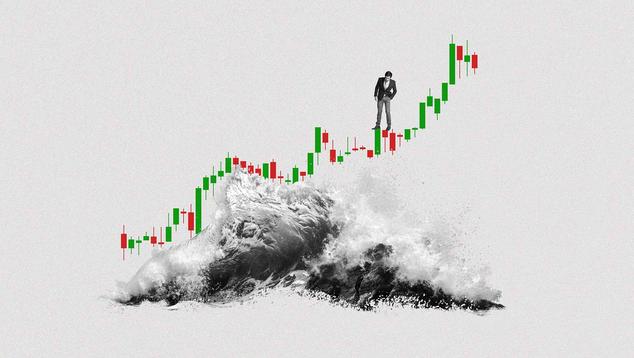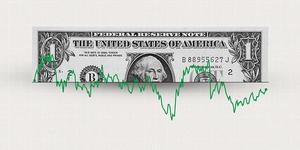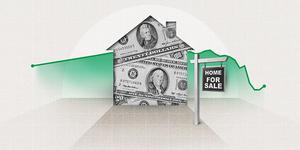Story Highlights
- 60% of investors are concerned about recent stock market volatility
- Majority expect volatility to persist, and possibly worsen, through 2025
- Most still view stocks as a good vehicle for building retirement wealth
WASHINGTON, D.C. — In a year of stock values reaching record or near-record highs early on, only to plummet in March and April before recovering in May and June, six in 10 U.S. investors express concern about market volatility, including 28% who are very concerned.
Most investors foresee volatility persisting through 2025 and believe the worst is still to come, rather than “behind us.” Despite this, investor confidence in the stock market as a means of building retirement wealth remains high.
These findings come from a June 2-15 survey of U.S. adults aged 18 and older with at least $10,000 invested in stocks, bonds or mutual funds, either within or outside of retirement accounts. The probability-based web survey was conducted before the S&P 500 and Nasdaq reached record closing highs in late June.
Partisans Disagree on Market Conditions
As is typical for this question, women worry more than men about market volatility, and there are slight differences by age. Adults approaching retirement (aged 50 to 64) are more likely than younger investors to feel very concerned, at 32% versus 24%, respectively. There is little difference in worry between high-and low-volume investors, but sizable gaps are seen by party.
Democratic investors (48%) are far more likely than Republican investors (9%) to say they are very concerned about recent stock market volatility and are twice as likely to be very or somewhat concerned overall (82% vs. 41%). Concern among independents falls between the two partisan groups, similar to the national average.
Investors See More Market Turbulence Ahead
Nearly three in four investors (73%), including almost all Democrats, most independents and about half of Republicans, believe stock market volatility will continue throughout 2025.
However, partisans disagree on whether the worst of the volatility has already occurred or is still to come. Nearly nine in 10 Democrats believe “the worst is ahead of us” (88%), whereas three in four Republican investors say the “worst is behind us.” Independents are more pessimistic than optimistic about the outlook for volatility, with 60% believing the worst is ahead.
Investor Mood Not Markedly Different From Recent Past
These questions about market volatility were previously asked in May 2018 — a time of strong market fluctuations resulting from inflation fears, interest rate uncertainty and trade tensions after then-President Donald Trump imposed new tariffs on steel and aluminum.
Investors’ current outlook is similar to May 2018, when 55% were either very or somewhat concerned about volatility. However, the share who are very concerned has more than doubled since then, from 11% to 28%, driven largely by increased Democratic concern. In 2018, only 17% of Democrats said they were very concerned, compared with 48% today.
Pessimism about the market was even higher in 2018, when 65% of investors said the worst was yet to come. At that time, more Republicans (34% vs. 24% today) expressed this view.
Meanwhile, seven in 10 investors (69%) now feel confident about investing in the stock market as a way to build wealth for retirement, including 23% who feel very confident. This is unchanged from the previous reading in 2020 but slightly less positive than in 2018, when 78% were generally confident.
Three in 10 Investors Monitoring Their Accounts More Closely
Investors are a bit more attentive to market volatility today than they were in 2018. Thirty-one percent, up from 22% seven years ago, say volatility has caused them to review their investment accounts more frequently. However, perhaps because some investors are heeding advice to focus on long-term returns, the percentage saying they have checked their accounts less frequently has also increased, from 1% to 8%. Majorities in both years (77% in 2018 and 61% in 2025) have said volatility hasn’t affected how often they review their accounts.
Behaviorally, investors are slightly more likely today (21%) than in February 2018 (16%) to say they have contacted a financial professional since the start of market volatility to get advice on how to handle it.
Also, at the time of the most recent poll, investors were about three times more likely to say they were purchasing stocks to take advantage of lower prices (37%) than to say they were selling stocks to protect themselves from further losses (13%). (This question was not asked in 2018.)
Partisan and Age-Based Differences in Market Behavior
Democrats are more likely than Republicans to say they’ve increased account monitoring (43% vs. 19%), sought professional advice (25% vs. 18%) or sold stocks to limit losses (17% vs. 10%). Republicans are more likely to say they have purchased stocks (45% vs. 28%). Again, independents’ reactions to the market are similar to the national averages.
Older investors (those aged 50 and older) are more likely to have consulted with a financial adviser this year, while younger and middle-aged investors are more likely to have adjusted their portfolios by buying or selling stocks in response to market conditions.
Bottom Line
U.S. investors are uneasy about recent market volatility, similar to how they felt when the markets were unsettled in 2018, but their longer-term faith in the stock market as a vehicle for building retirement wealth is intact. Further, while some investors have reduced their exposure to the market, the greater tendency has been to buy or sit tight, pointing to investor resilience and long-term optimism.
Stay up to date with the latest insights by following @¿Û¿Û´«Ã½ and .
Learn more about how the works.




